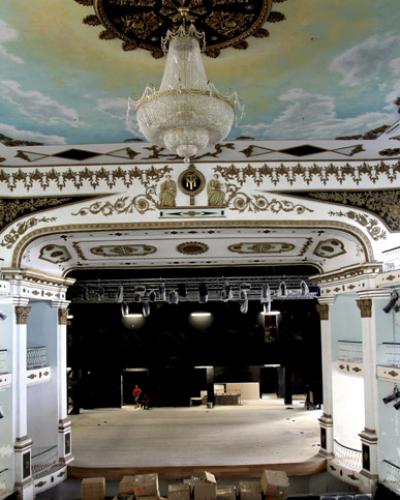Havana’s José Martí Theater reopened with a luxury Cuban show and the attendance of Cuban President, Raúl Castro.
At the opening gala held 119 years after the beginning of the second independence war against Spain, led by the Cuban National Hero, Havana’s Historian, Eusebio Leal, paid homage to the struggles led by Cubans throughout history to gain the island’s definitive Independence and full sovereignty.
Leal recalled that when the theater opened in 1884 for the first time through the efforts by Spanish immigrant, Ricardo Irijoa, slavery had not yet been abolished in Cuba, so blacks and mixed people were admitted in it for the first time.
The theater was also the venue of the Constituent Assembly in 1901 which led to the establishment of the 1902 Republic; it was also the site where Cuban Independence fighters, Salvador Cisneros Betancourt and Juan Gualberto Gómez, strongly rejected a US government interventionist article imposed on the new born republic: the infamous Platt Amendment, which gave the US the right to occupy the island if their interest were at stake; and it was also the venue of the first International Workers Day celebration in Cuba.
A symbol of popular Cuban theater, zarzuela (Cuban operetta) and opera, among other Cuban musical genre, the so called one-hundred-gate coliseum this time heard the voices of young Cuban singers from the Lyrical Theater Company, with emblematic pieces of the genre, such as Damisela encantadora, Amalia Batista, Mesié Julián and a potpourri of songs of the famous Cuban film The Beauty of the Alhambra, and also enjoyed all kinds of Cuban and international dances.
Various emblematic and historical buildings in Havana are currently undergoing renovation, such as the National Capitol, Havana’s Grand Theater and others that stand as symbols of the sacrifice, national dignity and Cuba’s undefeatable spirit.
Related Articles
Commentaries
MAKE A COMMENT
All fields requiredMore Views
- U.S. healthcare cuts spark nationwide protests
- Cuba defends Africa-America shared future at UN Tourism Summit
- Cuban foreign minister arrives in Honduras for CELAC Summit
- Massive anti-Trump protests take to the streets across the United States
- U.S. Colonel suspended for opposing Trump's military threat against Greenland


